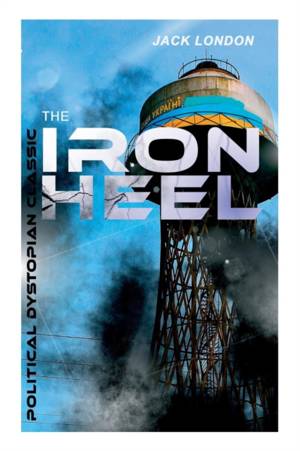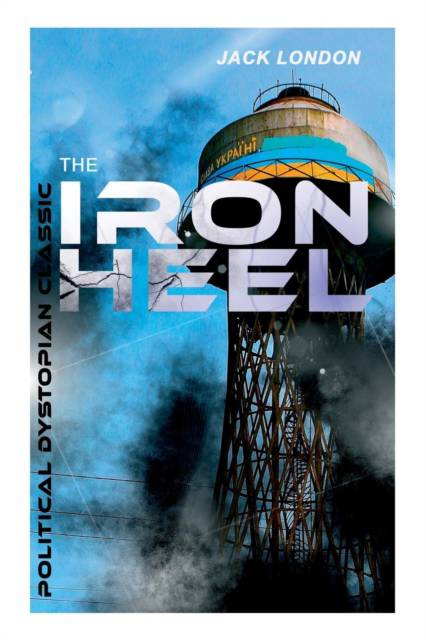
Bedankt voor het vertrouwen het afgelopen jaar! Om jou te bedanken bieden we GRATIS verzending (in België) aan op alles gedurende de hele maand januari.
- Afhalen na 1 uur in een winkel met voorraad
- In januari gratis thuislevering in België
- Ruim aanbod met 7 miljoen producten
Bedankt voor het vertrouwen het afgelopen jaar! Om jou te bedanken bieden we GRATIS verzending (in België) aan op alles gedurende de hele maand januari.
- Afhalen na 1 uur in een winkel met voorraad
- In januari gratis thuislevering in België
- Ruim aanbod met 7 miljoen producten
Zoeken
The Iron Heel (Political Dystopian Classic)
The Pioneer Dystopian Novel That Predicted the Rise of Fascism
Jack London
Paperback | Engels
€ 17,95
+ 35 punten
Uitvoering
Omschrijving
In "The Iron Heel," Jack London crafts a compelling political dystopian narrative that explores the rise of oligarchy and the plight of the working class. Set in the early 20th century, the novel employs a unique blend of realism and speculative fiction, immersing readers in a grim future where a powerful elite systematically crushes dissent. Through the eyes of protagonist Ernest Everhard, London critiques capitalism's machinations, foreshadowing a society teetering on the brink of authoritarianism. His poignant prose is laced with evocative imagery and rich character development, ensuring that the themes of social justice and class struggle resonate strongly with contemporary audiences. Jack London, an advocate for socialism and a fervent observer of social injustices, channels his own experiences as a working-class individual into this influential work. His travels, journalistic endeavors, and participation in labor movements informed his critical understanding of economic disparities and inspired his vision of a future where the struggle against oppression is paramount. London's personal encounters with hardship ultimately provide a compelling backdrop to the philosophical underpinnings of the narrative. Readers looking for a thought-provoking exploration of class conflict and political treachery will find "The Iron Heel" an essential addition to their literary repertoire. London's prescient warnings alongside his vivid storytelling encourage reflection on the balance of power and the resilience of the human spirit. This classic remains remarkably relevant today, inviting engagement with its urgent themes and profound insights.
Specificaties
Betrokkenen
- Auteur(s):
- Uitgeverij:
Inhoud
- Aantal bladzijden:
- 148
- Taal:
- Engels
Eigenschappen
- Productcode (EAN):
- 9788027330034
- Verschijningsdatum:
- 14/12/2018
- Uitvoering:
- Paperback
- Formaat:
- Trade paperback (VS)
- Afmetingen:
- 152 mm x 229 mm
- Gewicht:
- 208 g

Alleen bij Standaard Boekhandel
+ 35 punten op je klantenkaart van Standaard Boekhandel
Beoordelingen
We publiceren alleen reviews die voldoen aan de voorwaarden voor reviews. Bekijk onze voorwaarden voor reviews.









